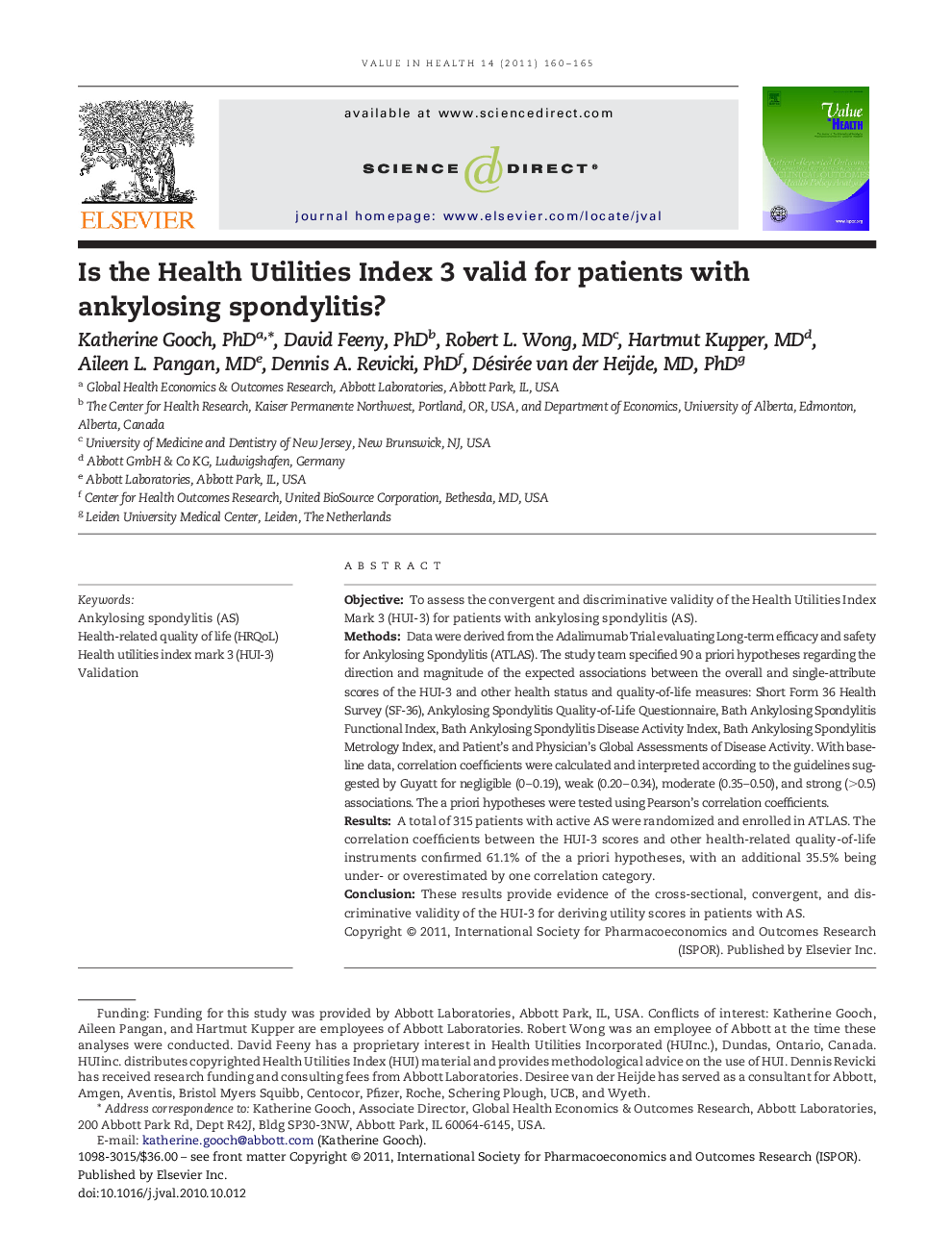| Article ID | Journal | Published Year | Pages | File Type |
|---|---|---|---|---|
| 991428 | Value in Health | 2011 | 6 Pages |
ObjectiveTo assess the convergent and discriminative validity of the Health Utilities Index Mark 3 (HUI-3) for patients with ankylosing spondylitis (AS).MethodsData were derived from the Adalimumab Trial evaluating Long-term efficacy and safety for Ankylosing Spondylitis (ATLAS). The study team specified 90 a priori hypotheses regarding the direction and magnitude of the expected associations between the overall and single-attribute scores of the HUI-3 and other health status and quality-of-life measures: Short Form 36 Health Survey (SF-36), Ankylosing Spondylitis Quality-of-Life Questionnaire, Bath Ankylosing Spondylitis Functional Index, Bath Ankylosing Spondylitis Disease Activity Index, Bath Ankylosing Spondylitis Metrology Index, and Patient's and Physician's Global Assessments of Disease Activity. With baseline data, correlation coefficients were calculated and interpreted according to the guidelines suggested by Guyatt for negligible (0–0.19), weak (0.20–0.34), moderate (0.35–0.50), and strong (>0.5) associations. The a priori hypotheses were tested using Pearson's correlation coefficients.ResultsA total of 315 patients with active AS were randomized and enrolled in ATLAS. The correlation coefficients between the HUI-3 scores and other health-related quality-of-life instruments confirmed 61.1% of the a priori hypotheses, with an additional 35.5% being under- or overestimated by one correlation category.ConclusionThese results provide evidence of the cross-sectional, convergent, and discriminative validity of the HUI-3 for deriving utility scores in patients with AS.
